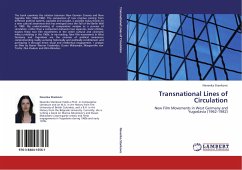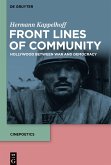The book examines the relation between New German Cinema and New Yugoslav Film (1962-1982). The comparison of two cinemas coming from different political systems, capitalist and socialist, is possible today thanks to a new cultural awareness that has emerged since the Fall of the Berlin Wall in 1989. My understanding of comparative analysis as a process of circulation, rather than a comparison between two separate, static entities, locates these two film movements in the wider cultural and cinematic milieu unfolding in the 1960s. In my reading, New Film movements in West Germany and Yugoslavia are the cinemas of political awareness comprehending reality as being historically and politically conditioned, and portraying it through direct social and intellectual engagement. I analyze six films by Rainer Werner Fassbinder, Dusan Makavejev, Margarethe von Trotta, Zika Pavlovic and Wim Wenders.








